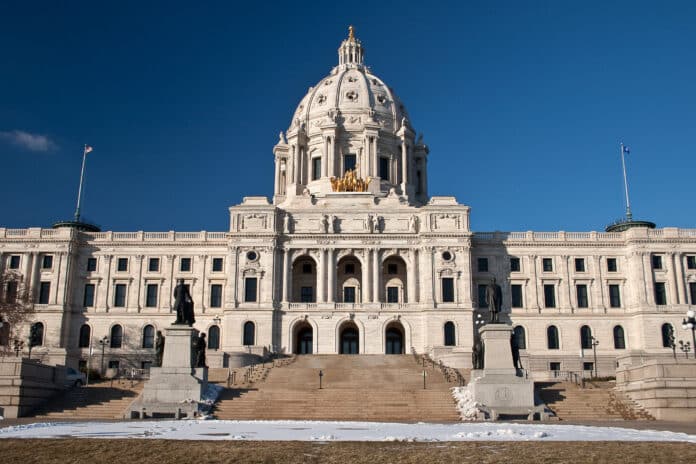(The Center Square) — The Minnesota House of Representatives on Thursday passed a record increase in investment for the state’s colleges and universities amid declining enrollment in higher education, the DFL Caucus announced.
House Higher Education Committee Chair State Rep. Gene Pelowski, DFL-Winona, authored the proposed higher education budget, HF 2073, for 2024-2025. It passed 69-58.
The Minnesota House Research Department bill summary said the total appropriation for the Office of Higher Education is $124.021 million more compared with the previous biennium.
The Office of Higher Education would receive $3 million every year for $1 million grants to three of Minnesota’s Tribal Colleges: Leech Lake Tribal College, White Earth Tribal College and Red Lake Nation Tribal College.
According to the Minnesota House Research Department, the funding is $6 million above base for the biennium.
Minnesota State Colleges and Universities would receive $331.351 million more compared with the previous biennium, the department said. The budget funds a two-year tuition freeze at Minnesota State, with a $75 million appropriation. There would be $50 million in fiscal year 2024 for one-time campus support.
-Enrollment down 30%
-Tuition Increases continuing
-$800,000 Salary for U President
-Degrees costing more than they’re worthOur colleges don’t need $650 Million in handouts.
They need to offer a better product. pic.twitter.com/QXU7Ah58Kw
— Elliott Engen (@elliottengenMN) April 12, 2023
The University of Minnesota receives one-time funding to address the tuition shortfall of $48 million over the biennium, the release said. The budget also fully funds the University of Minnesota’s systemwide safety and security request of $10 million in the 2024-25 fiscal year.
The House proposes spending $10.75 million per year for workforce development scholarships, which is $12.5 million above base for the biennium, the department said. The bill also includes $12.5 million per year in one-time funding for upgrades to equipment and learning environments.
Pelowski and Speaker Melissa Hortman said in the DFL’s news release that the budget addresses years of underinvestment in higher education and will make that education more affordable for students.
A spreadsheet of the bill’s investments is here.
















